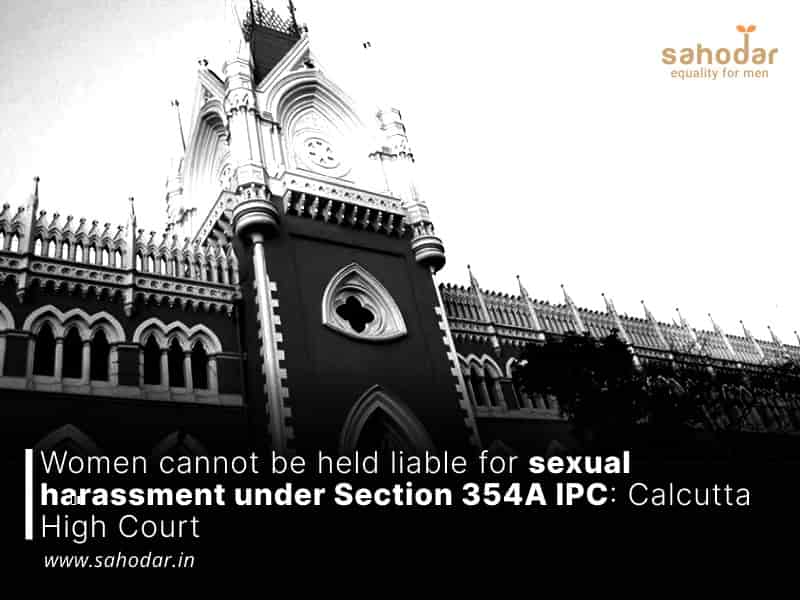The Court noted that the provision is gender-specific and that only a male person can be held liable under this Section.
The Calcutta High Court recently noted that a woman cannot be charged with sexual harassment under Section 354A of the Indian Penal Code (IPC) in the case of Susmita Pandit vs. State of West Bengal & Another.
Justice Ajay Kumar Gupta clarified that Section 354A of the IPC, which addresses sexual harassment, is gender-specific and applies only to men.
“It can be safely accepted that a female cannot be an accused under Section 354A of the IPC as is evident from very terminology as used in the said enactment. This offence is gender specific and only a male can be prosecuted under this offence. A female accused will not be covered under the mischief of this Section as a result of the specific words ‘a man’ used in the Section 354A sub-sections (1), (2) and (3) of the IPC,” the Court noted in its July 26 judgment.
The Court also highlighted that criminal law must be interpreted strictly, as seen in the Supreme Court ruling in Tolaram Relumal and Another vs. the State of Bombay.
“if two possible and reasonable constructions can be put upon a penal provision, the Court must lean towards that construction which exempts the subject from penalty rather than the one which imposes penalty. It is not competent to the court to stretch the meaning of an expression used by the Legislature in order to carry out the intention of the Legislature,” the High Court said.
The Court made these points while considering a plea from a woman (the petitioner) who was one of four people accused in a 2018 criminal case involving sexual harassment and criminal intimidation.
The complaint alleged that the petitioner’s father (the main accused) tried to molest the complainant’s mother. The case also accused the petitioner and others of repeatedly intimidating and harassing the complainant’s mother.
The petitioner asked the High Court to dismiss the criminal case against her, arguing that there were no specific accusations against her and that she had no part in the alleged crime.
Her lawyer pointed out that Section 354A of the IPC starts with “a man,” meaning it only applies to male defendants.
He also mentioned that the charge sheet does not have any specific allegations against the petitioner to support a charge under Section 354 (use of criminal force on a woman) of the IPC.
The lawyer also argued that the petitioner was only accused because she is the daughter of the main suspect.
The State argued that all the accused had a shared intention and that the petitioner was among those who threatened the complainant and her mother with serious consequences.
However, the Court found the allegations against the petitioner to be unclear and general. The Court also noted that Section 354A of the IPC, which deals with sexual harassment, could not be used against the petitioner since she is a woman.
The Court, therefore, dismissed the criminal proceedings against the petitioner.
The Court added, “The allegations against the petitioner are simply an attempt to involve her out of spite and personal grudges against the accused. In such cases, the High Court can use its inherent power under Section 482 of the CrPC to prevent misuse of the legal process and ensure justice is served.”
Advocates Ayan Bhattacharjee, Amitabrata Hait, and Arpit Choudhury represented the petitioner.
Advocates Madhusudan Sur and Dipankar Paramanick represented the State.

